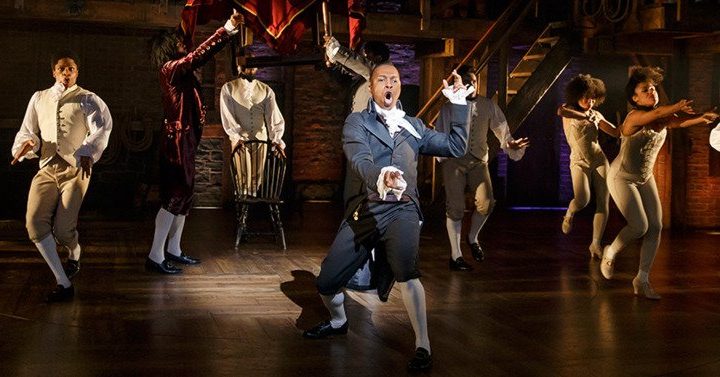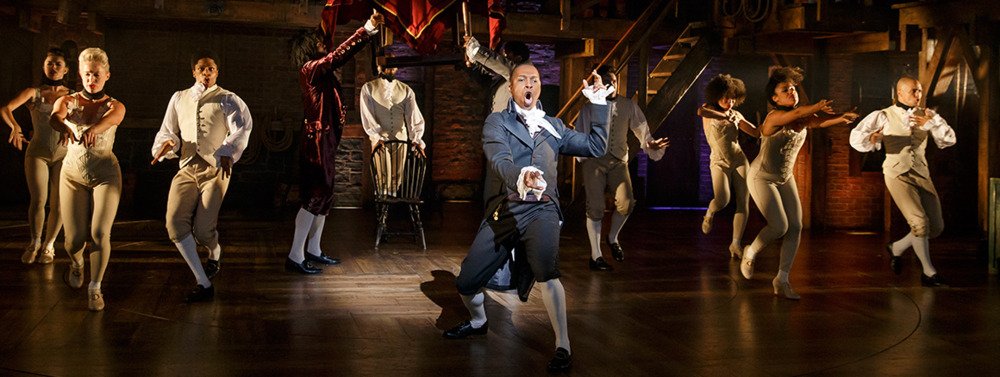Have you heard the one about the church that ripped off the most successful Broadway musical of the moment, rewrote parts of the script and turned it into an altar-call evangelistic event? Turns out that anti-gay church in McAllen, Texas, will be paying damages to the copyright owners of Hamilton, who in turn plan to hand over the money to an LGBTQ resource center in the church’s own town.
Leaders of The Door Christian Fellowship are now likely to wish they had not been in the room where it happened.
Let’s take this story from the top.
Hamilton, written by Lin-Manuel Miranda, remains the top-grossing new show on Broadway and is — without contest — the most-talked-about new show of the decade. The show has been hailed as transformative in the theater world, is now on national tour and has been made into an equally successful movie version.
The Door Christian Fellowship describes itself as a “Bible-based, Spirit-filled, nondenominational family of believers.” The 32-year-old congregation is based in McAllen, which is located at the far southern tip of Texas, just across the border from Reynosa, Mexico. McAllen and Harlingen are the two largest cities at the bottom of the state and are just a bit inland from South Padre Island.
The church altered the plot and some lyrics to reference Jesus and to show Alexander Hamilton repenting.
On Aug. 5 and 6, the church staged an unauthorized version of Hamilton — regional theaters can’t even get permission to stage this show yet — and streamed the performance online. Further, the church altered the plot and some lyrics to reference Jesus and to show Alexander Hamilton repenting. The church ended its performance with a sermon inviting people “struggling” with alcohol, drugs or same-sex orientations to seek forgiveness.
In legal terms, that amounts to not just one violation but multiple violations: unauthorized performance, unauthorized alterations of copyrighted material, unauthorized online performance.
For example, in the song “That Would Be Enough,” sung to Hamilton by his wife, Eliza, she says: “I know who I married, so long as you come home at the end of the day, that would be enough.” The church changed the line to: “My hope is in Jesus, if you could just give him a chance today, that would be enough.”
On Aug. 23, the McAllen church released a statement on its social media platforms and on the home page of its website addressing the infringement from Pastor Roman Gutierrez.

Roman Gutierrez
“On behalf of The Door Christian Fellowship McAllen Church, I would like to personally apologize to the creator of Hamilton, Lin-Manuel Miranda, the producers of Hamilton, and the numerous others who contributed their intellectual property to Hamilton, for staging an unauthorized production of Hamilton that infringed on the rights and copyrights of many.
“The Door Christian Fellowship McAllen Church did not ask for, or receive, a license from the producers or creators of Hamilton to produce, stage, replicate or alter any part of Hamilton; nor did we seek prior permission to alter Lin-Manuel Miranda’s work by changing the music, the lyrics, deleting songs, and adding dialogue.
“We respect the copyrights of Hamilton’s author and contributors. These copyrights are protected by federal law. We acknowledge there are lawful avenues to obtain a license to stage properties which we did not pursue. And it is never permissible to alter an artistic work such as Hamilton without legal permission. I recognize as the pastor of the church that I have an obligation and responsibility to follow the law and educate our community about these protocols. Our ministry will use this moment as a learning opportunity about protected artistic works and intellectual property.
“On behalf of The Door Christian Fellowship McAllen Church, we agree we will never stage the performance again and will destroy any and all video or sound recordings and images of the unauthorized performances or rehearsals, and request that all our members do the same. Lastly, we will pay damages for our actions.”
In general, the legal penalties for copyright infringement run from $200 to $150,000 — per infringement. Courts also may order violators to pay the legal fees of the copyright holder.
How much those damages will total was not disclosed. In general, the legal penalties for copyright infringement run from $200 to $150,000 — per infringement. Courts also may order violators to pay the legal fees of the copyright holder.
The producers of Hamilton issued their own statement: “Hamilton will be donating all damages paid by The Door Christian Fellowship McAllen Church to the South Texas Equality Project. The South Texas Equality Project is a coalition of organizations that work to advocate for, celebrate, uplift, educate, and provide support to the LGBTQIA+ community of the Rio Grande Valley.”
While this was a flagrant — and likely expensive — violation of copyright law by a church, the problem of church’s ignoring copyrights is nothing new.
Those violations may range from clever rip-offs of corporate logos for spiritualized T-shirts (think “Jesus Christ” set in the font of Coca-Cola) to illegal duplication of music, to unauthorized performances, to unauthorized rewrites of lyrics. (Anyone ever sung “Praise the Lord” to “Edelweiss”?)
Churches do enjoy a religious exemption to perform or play recordings of music in their live worship services. The key words here are “live” and “worship services.” The exemption does not extend to recordings or even live-streaming, and the usage must occur within a regular worship service. Even so, “dramatico-musical” works — such as Hamilton — are expressly excluded from this exemption.
Churches also commonly run afoul of copyright laws by making copies of music.
There are legal ways around some of the most common copyright issues for churches, including special licenses through third parties. None of those solutions applies to theatrical works, however, which always require special licenses — if even available.
Brotherhood Mutual, one of the nation’s largest carriers of church insurance policies, offers this blanket advice: “Although there are a few limited exceptions to copyright protection, your ministry should always investigate the copyright status of any literary, musical, dramatic, or audiovisual works before using them. Simply giving credit to the creator of copyrighted works used in a bulletin or program is no defense against charges of copyright infringement.”
Related articles:
The God Bless the USA Bible is back — but back-ordered
In Hamilton, King George has Calvin on his side | Analysis by Rick Pidcock


